
Discover the benefits of diversification for your farm and local economy

Diversification has become increasingly popular in recent years, and for good reason. Not only does it allow you to tap into new markets and revenue streams, but it also helps to future-proof your business. By spreading your risk across multiple ventures, you’re less vulnerable to market fluctuations or environmental factors that may impact a single crop or product.
Expanding your range of products and services can have a positive impact on your local community. By introducing new and innovative offerings, you can attract a larger customer base to your area, thereby increasing foot traffic and benefiting other local businesses. Additionally, diversification can create employment opportunities and contribute to the growth of the local economy.
We’ve compiled a range of farm diversification ideas for you to consider, including pick-your-own crops, meat boxes agri-tourism, eco-tourism, and more. So whether you’re a seasoned farmer or just starting out, there are plenty of opportunities to diversify and grow your business. Feel free to think creatively and explore alternative options – there are numerous advantages to diversification that you can take advantage of.

Meat Boxes
In the age of increasing awareness around animal welfare and sustainability, you as a farmer can turn these concerns into a positive for your business by offering meat boxes and direct-to-consumer sales. By selling high-quality, locally sourced meat, you can connect directly with your end consumers and build a loyal customer base.
One of the main benefits of meat boxes is that they allow you to promote your eco-friendly practices and low food miles. By offering a delivery service, you can also provide added convenience for your customers. To further diversify your meat selection, you can partner with other local producers and explore rare breeds of animals as a unique selling point.
Highlighting a unique selling point is key to standing out from the competition. Whether it’s the location of your farm, the breed of animal produced, or a unique natural ingredient, you should emphasise what sets your business apart. This can help prospective customers understand why they should choose your brand over others.
In addition to selling meat boxes, you can explore other opportunities to generate revenue from your rare breed animals. Farm tours, experience days, tasting events, and even filming opportunities can all provide additional income streams.
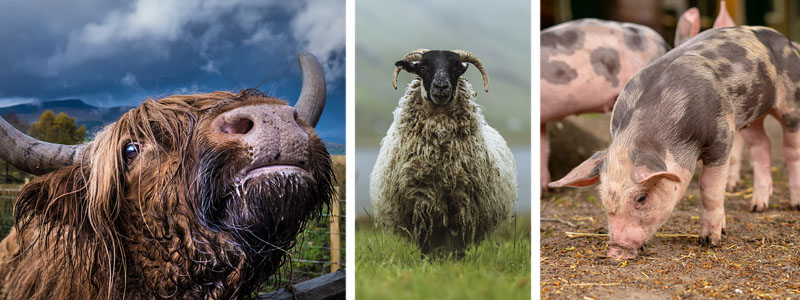
Rare Breeds
The British countryside is home to a wealth of rare breed animals, which can offer you, as a farmer, a unique opportunity to create a strong commercial case for your produce. Not only do these animals have lower vet and medicine costs, but they also have a lower environmental impact and production costs. Furthermore, there is a growing consumer interest in food provenance, which presents a fantastic marketing opportunity for you.
From a meat sales perspective, there are many marketing opportunities for rare breed animals that can help you promote your produce, such as breed-specific schemes, local butchers, farm shops, online orders, and home deliveries. However, there are also other revenue-making opportunities available to you. You can open your doors to visitors by offering farm tours, experience days, and tasting events, providing customers with a unique insight into the daily workings of your farm and making them feel more connected to the animals and their food.
Rare breed animals can also help you diversify your revenue streams by offering farm experiences that include lambing, shepherd training, and sheepdog demonstrations. These activities can be great fun for visitors and provide them with unforgettable memories that they will cherish for years to come.
Another way to capitalise on rare breed animals is to offer filming opportunities. With the rise of social media and online content, there is a growing demand for authentic and engaging farm content. You can leverage this by offering your land and animals as a backdrop for photoshoots, videos, and other media productions.
Have you considered your Unique Selling Point (USP)?
Your USP is what sets your farm apart from other farms in the market. It could be your farm’s location, the breed of animal you produce, or a unique ingredient or natural feature you use. It is essential to promote your business using your USP to help prospective customers understand why they should choose your farm over others. Let your USP do the talking and showcase what makes your farm unique and special.
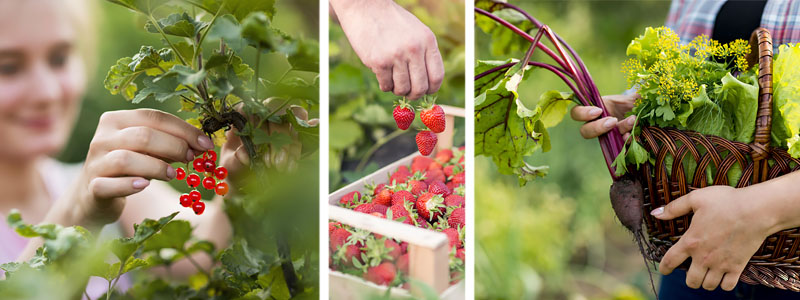
Pick Your Own
If you’re a farmer or landowner looking to diversify your offerings, you should consider the Pick Your Own (PYO) industry. With a wide range of crops available, from traditional strawberries to popular pumpkins and an array of vegetables, there are numerous opportunities for you to provide a memorable and one-of-a-kind experience for your customers.
Not only do PYO farms offer fresh produce, but they also often provide fun activities such as hayrides, petting zoos, and corn mazes to create a family-friendly atmosphere. Some even offer cooking classes, tastings, and workshops to educate visitors on how to cook with their freshly picked produce. This hands-on experience not only provides an enjoyable outing for your customers but also promotes a deeper appreciation and understanding of where our food comes from.
The PYO industry has expanded to include exotic fruits, such as chillies, flowers, and even Christmas trees, creating a unique niche market for farmers and landowners looking to diversify their operations. Additionally, a veg box delivery service is another way to cater to customers looking for locally sourced produce. This service not only provides convenience for your customers but also supports local farmers and reduces the carbon footprint of food transportation.
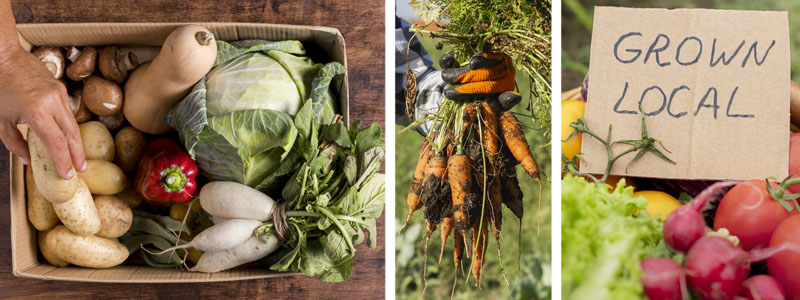
Veg Boxes
Producing veg boxes can be a lucrative and rewarding venture for UK farmers looking to diversify their businesses. With growing demand for local and sustainable produce, more people are turning to vegetable box schemes for their weekly groceries. It can be done on a small scale, making it accessible to farmers with limited land and resources, requiring only the ability and passion for growing healthy, delicious vegetables.
To plan your business, consider your target market, including local shops and restaurants that may be interested in stocking your produce. Build strong relationships with these businesses to ensure a steady stream of customers. Focus on growing what’s in season, planting a variety of crops that mature at different times to ensure a regular supply of vegetables throughout the year.
Logistics is also important to consider, such as offering a flexible and reliable delivery service to build a loyal customer base. By following these tips, you can create a successful and sustainable business that meets the growing demand for fresh, healthy vegetables.

Growing Flowers
If you’re looking for a thriving industry to tap into, flower farming in Britain is a great option. The demand for locally sourced and sustainable produce is increasing, and there are many advantages of flower farming that can benefit your business.
One of the main benefits of flower farming is the potential for generating income, even from small plots of land. You can sell your produce through various channels, such as farm gate bouquets, wholesale, local florists, farm shops, workshops, fairs, and shows, and even Pick Your Own.
As a flower farmer, you have the unique opportunity to offer customers a direct connection to the land and flowers they purchase. By providing locally sourced flower bouquets, you can cater to consumers seeking sustainable and locally grown produce, leading to increased profits and building customer loyalty.
With the increasing demand for sustainable and locally grown cut flowers, UK-grown flowers have become an attractive option. By growing your own flowers, you can offer unique and personalised options for gifts that cannot be found elsewhere. This can be a lucrative opportunity for local businesses looking to reduce their carbon footprint and support the community.
While flower farming requires investment in time and resources, the rewards can be significant in terms of financial gain and personal satisfaction. In addition to generating income, flower farming can enhance the aesthetics of your farm by adding colour and beauty, attracting pollinators, and providing a sense of tranquility and peace.
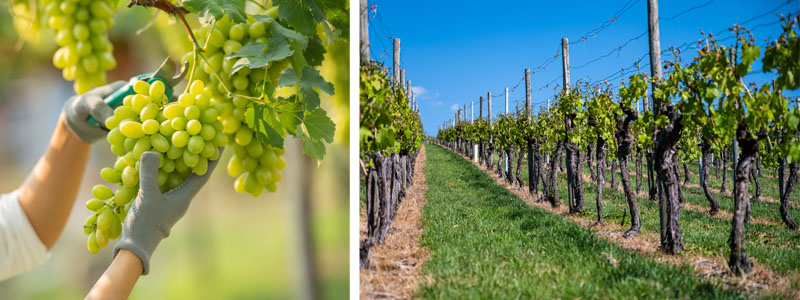
Viticulture
Viticulture, the art of growing and harvesting grapes for wine production, is rapidly becoming one of the most exciting and lucrative sectors in UK farming. Recent figures from WineGB have shown that sales of English wine are continuing to rise, with 9.3 million bottles sold in 2021 compared to 7.1 million in 2020.
This increase in demand can be attributed to the changing global climate, which has created favourable grape-growing conditions in parts of the UK that were previously unsuitable for viticulture. As a result, more and more farmers are exploring the possibility of diversifying into this dynamic market, which offers great potential for growth and profitability.
To maximise profits in viticulture, you can consider building a circular community of businesses that complement each other. By partnering with other local businesses such as wineries, restaurants, and hotels, you can create a complete experience for consumers.
Diversifying into viticulture provides an excellent opportunity for you to supplement your existing enterprise. By taking advantage of the changing climate, you can tap into a rapidly growing market that offers exciting prospects for the future. Moreover, by building a network of complementary businesses, you can enhance your brand and create a unique value proposition that sets you apart from competitors.

Alcoholic Drinks
When considering producing your own alcoholic drinks, research is crucial. It’s important to examine what is currently available in the market and what unique features your farm can offer. Using uncommon crops, experimenting with flavours, or utilising unique flora on your farm can set you apart in the highly profitable UK alcoholic drinks market. Producing your own drinks can be a profitable venture with the right equipment, training, and marketing strategies.
William Chase, the founder of Tyrrells Crisps, is a prime example of success in this market. He created a multi-million-pound company by making gin and vodka from potatoes. This is a great example of taking what you already have and using it to create a unique and profitable product.
Producing your own alcoholic drinks can also showcase the quality of your crops and the care taken in their production. You must consider the process of distilling and brewing, as well as the legal requirements for selling alcohol.
If you decide to produce your own drinks, it’s important to invest in equipment and resources to ensure a high-quality product. This may involve purchasing distilling or brewing equipment and investing in training and education for yourself or your employees.
Creating a tasting room or collaborating with local bars and restaurants can help you reach new customers and build a loyal customer base. By showcasing your unique product and providing a memorable experience, you can differentiate your farm from competitors and establish a successful business.

Events
While weddings may be your first option when thinking about events on your farm, there is so much more that you can do to make the most of the picturesque settings that your farm has to offer. Fields, woodlands, and barns all present opportunities for holding a variety of events that can be both profitable and enjoyable.
One option to consider is holding open days or school trips. These can be a great way to engage with the local community and showcase what your farm has to offer. This is a particularly good option for farms that are looking to diversify and offer new services, such as farm shops, petting zoos, or workshops. School trips can be an excellent way to educate children about farming, animal welfare, and the importance of sustainable food production.
Another opportunity for you is to host corporate events and meetings. These can be an excellent way to make use of large event spaces, such as barns or conference rooms, and generate revenue outside of peak farming seasons. These events can be tailored to meet the specific needs of the corporate clients, offering opportunities for team-building activities, networking, and product launches.
Charity events and fundraisers are also an excellent way to generate revenue for your farm while supporting a good cause. Hosting charity events, such as fun runs, auctions, or fairs, can draw in large crowds and bring the community together for a good cause. This can also provide a positive image for your farm and its business.
Classes and workshops are another option to consider, especially for farms that produce artisanal goods, such as cheese, wine, or honey. These can be an excellent way to share knowledge and skills with others while promoting your farm’s products. Workshops can be tailored to meet the needs of different audiences, including beginners, hobbyists, and professionals.
Remember to check planning regulations and tailor events to meet the needs of different audiences. With careful planning, you can create unique and memorable experiences for your customers while promoting your business.
Plan for planning
It’s important to remember that if you ever stop using your farm for agricultural purposes, you will most likely need to submit a change of use planning application. This means you will need to plan ahead and be prepared for the necessary paperwork and potential changes to your land use. Make sure to keep this in mind when considering any changes to your farm’s operations. Proper planning can help ensure a smoother transition and avoid any potential setbacks in the future.
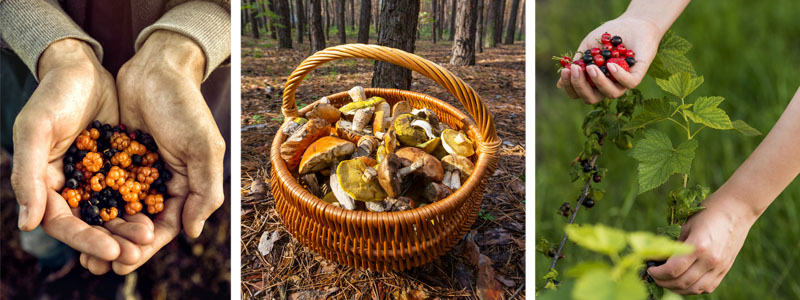
Foraging
The countryside is full of wild foods, and foraging tours provide an opportunity for visitors to connect with nature and experience the abundance of produce that can be found right on your doorstep.
Foraging courses have seen a surge in popularity over the last decade, and as a farmer, you can use your land to host guided tours and teach people about the wild foods that can be found. From early spring to late autumn, there are a plethora of wild foods that can be harvested, including nettles, wild garlic, elderflowers, hawthorn berries, mushrooms, blackberries, and nuts. By showing your guests how to cook, preserve, drink, or store the ingredients they have gathered, you can share your knowledge and expertise in a fun and engaging way.
Foraging also offers a unique way for farmers to diversify their income streams. By adding foraging tours to your existing business model, you can attract a new type of customer and expand your customer base. With the increasing demand for locally sourced and organic produce, foraging offers a perfect opportunity for farmers to showcase their produce and demonstrate their commitment to sustainability.
Sharing the joy of foraging with your customers can also help to foster a stronger relationship between you and your customers. By teaching them how to forage and cook with fresh, organic ingredients, you can help to inspire a new generation of foodies who appreciate the value of seasonality, biodiversity, and sustainability.
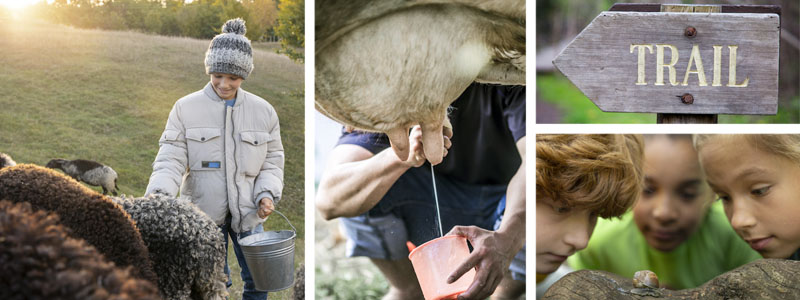
Farm School
Creating a farm school requires a significant amount of planning and resources, but the potential benefits are considerable. To begin, locate a suitable area on your farm that can accommodate various age groups and activities, providing easy access, adequate facilities, and safety for all visitors.
Following that, create a plan that emphasises practical, interactive activities that encourage learning, exploration, and innovation. Consider incorporating farming activities such as milking cows, gathering eggs, and growing vegetables, as well as outdoor activities like nature walks and den-building.
Having a qualified and experienced team is crucial to make sure your program runs smoothly and safely. Consider hiring people like trained teachers, instructors, or experienced farmers who share your passion for outdoor education and love for nature.
Promoting your farm school is crucial to its success. Utilise your existing networks to spread the word and partner up with local schools, nurseries, and community groups to advertise your services. Social media platforms such as Facebook, Instagram, and Twitter can also be useful tools to reach a larger audience.
There are several revenue streams available for your farm school, such as charging fees for attending courses, workshops, and activities. Additionally, you can hold corporate team-building events, rent out your space for birthday parties or summer camps, and sell farm-grown produce to generate income.
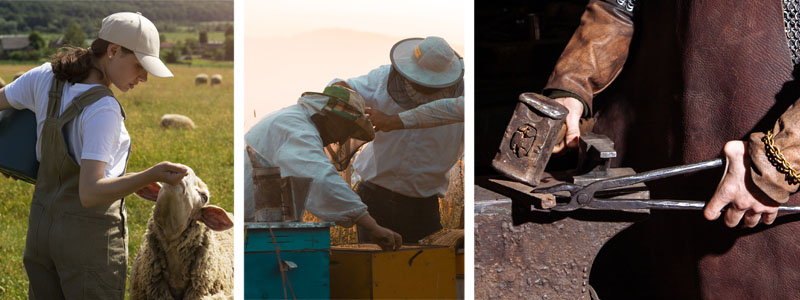
Rural Skills Workshops
You might consider offering rural skills workshops on your farm. These workshops can cover a wide range of hands-on skills, from animal husbandry to drystone walling and hedge laying, and can be aimed at a variety of audiences, including new entrants to the industry, smallholders, young farmers, and school children.
There are many benefits to offering rural skills workshops. Primarily, it provides you with an opportunity to share your valuable knowledge and expertise with others. Many of the skills that you use every day are highly specialised and difficult to learn from books or other sources. By offering hands-on training, you can help to nurture the next generation of skilled rural workers and entrepreneurs, ensuring that these skills are passed down from one generation to the next.
In addition to imparting knowledge, rural skills workshops can also help you to create a sense of community. By bringing together people who share a passion for the land and a desire to learn new skills, these workshops can help to foster a sense of belonging and encourage collaboration and cooperation. This can be especially valuable for smallholders and novice farmers, who may be struggling to find their place in the wider farming community.
You could make some extra income by charging a fee for these courses which can be especially important in times of economic uncertainty, when you may be facing challenges such as declining commodity prices or changing regulatory environments.

Allotments
Setting up allotments on your land can be approached in several ways. One option is to establish an informal agreement with interested individuals or groups, allowing you to assess community interest and determine logistics for managing the area. On the other hand, establishing a formal agreement with a local council or community group can provide more stability and support, but may require compliance with legal requirements.
When creating allotments, it’s essential to consider the needs of those who will use the space. Providing access to water, tools, and storage for gardening equipment is necessary. It’s also important to establish clear guidelines for plot management, including rules around weed control and composting.
Offering allotments on your land can provide many benefits. Apart from the potential for diversifying your income and utilising unused land, it can also promote healthy eating habits, exercise, community building, and even mental health and wellbeing.
If you’re interested in providing allotments on your land, researching and contacting local community groups and councils is crucial. With proper planning and effort, you can create a space that offers a significant benefit to your community while maximising your land’s potential.

Compost
Composting is a great way to bring in some extra income and contribute to a more sustainable future. With the upcoming ban on peat sales, you can fill the gap and offer a sustainable alternative using your own compost. By working with the natural decay process of plant matter and manure, you can create a nutrient-rich soil amendment that is highly valued by gardeners.
Incorporating your farm’s own manure into the compost mix can produce compost that is rich in nutrients and highly sought after. Not only can this be a profitable way for you to generate additional income, but it can also help reduce the demand for peat-based products, which is crucial for protecting peatlands.
In addition to generating income, composting can also have a positive impact on your local economy and community. By producing and selling your own compost locally, you can support other businesses in your area, such as gardening stores and nurseries. This can create a positive ripple effect by boosting local spending and creating jobs.
Composting can also help to strengthen your connection with the local community. By promoting sustainable agriculture practices and raising awareness about environmental stewardship, you can encourage a sense of community pride and engagement in environmental initiatives. This, in turn, can have widespread benefits for everyone in your area.
Useful resources for farmers
For farmers looking to diversify their businesses, there are many resources available to help navigate the process. From government agencies to industry associations and charities, there are a variety of organisations dedicated to supporting rural businesses in the UK. In this list, we’ve compiled some of the most useful links for farmers and rural businesses looking to diversify, including government agencies like DEFRA and the Rural Payments Agency, as well as industry associations like the National Farmers’ Union and the Farm Retail Association.
Department for Environment, Food and Rural Affairs (DEFRA)
DEFRA is the UK government department responsible for environmental protection, food production and farming. They provide information and guidance on a range of topics related to farming and agriculture, including farm diversification.
Visit the DEFRA website
Rural Payments Agency (RPA)
The RPA is an executive agency of DEFRA that provides funding and support for rural businesses, including farmers looking to diversify. They administer a range of funding schemes, such as the Countryside Productivity Small Grant Scheme, which can support diversification projects.
Visit the Rural Payments Agency website
Scottish Government
The Scottish Government provides guidance and support for farmers and rural businesses in Scotland. Their website includes information on diversification, as well as funding opportunities and case studies.
Visit the Scottish Government website
Welsh Government
The Welsh Government provides support and guidance to farmers and rural businesses in Wales, including information on diversification opportunities and funding schemes.
Visit the Welsh Government website
The National Farmers' Union
The NFU provides guidance on diversification options, including renewable energy, holiday accommodation, and farm shops. They also provide a range of publications and resources for members.
Visit The National Farmers’ Union website
The Country Land and Business Association (CLA)
The CLA represents landowners, farmers, and rural businesses in England and Wales. They provide support and advice on a wide range of topics, including diversification, and also offer training and events.
Visit the CLA website
The Farm Retail Association
This association represents farm shops and other retailers that sell produce directly to consumers. Their website includes resources, advice, and networking opportunities for members.
Visit The Farm Retail Association website
The Scottish Agricultural Organisation Society (SOAS)
This organization provides support and advice to Scottish farmers looking to diversify. Their website includes case studies and resources on topics such as tourism, renewable energy, and food processing.
Visit The SOAS website
The Prince's Countryside Fund
This is a charity that provides support and funding for rural communities and businesses, including farms. They offer grants for diversification projects, as well as training and advice.
Visit The Prince’s Countryside Fund
The Soil Association
The Soil Association is a charity that supports organic farming and sustainable food production. They offer advice and resources on diversification, as well as other topics related to farming and sustainability.
Visit The Soil Association website
Farming and Wildlife Advisory Group (FWAG)
FWAG is a charity that provides advice and support for farmers and landowners on a range of environmental issues. They offer guidance on diversification, as well as resources on conservation and sustainable farming practices.
Visit the FWAG website
Expert marketing and branding assistance for farmers
Farm diversification can be a highly successful and rewarding experience for farmers when approached with the right effort. Not only does it enable farmers to create additional income streams, but it also allows them to provide unique and valuable experiences to their customers. Although effective marketing is crucial to attract customers, farmers can also leverage their existing networks and word-of-mouth to expand their customer base. Nevertheless, specialised marketing services are available to assist farmers in achieving their goals.
Joining The Artisan Food Trail is an excellent way to promote your farm diversification ventures
As a member of our community, you will have access to various resources and opportunities to connect with food enthusiasts and potential customers, whether they are trade or public. By showcasing your distinctive and high-quality products to a wider audience, you can increase your exposure and reach.
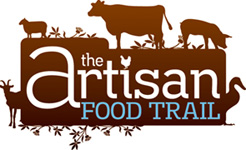
Sign up to receive our newsletter
For the latest producer info, shows, markets, recipes, competitions and more each month.
Please be assured that we don't sell or pass on your information to third parties.
Keep up to date with:
- New and approved producers and produce
- Offers, discounts, competitions and more
- Seasonal produce and great tasting downloadable recipe ideas
- Shows, events and markets